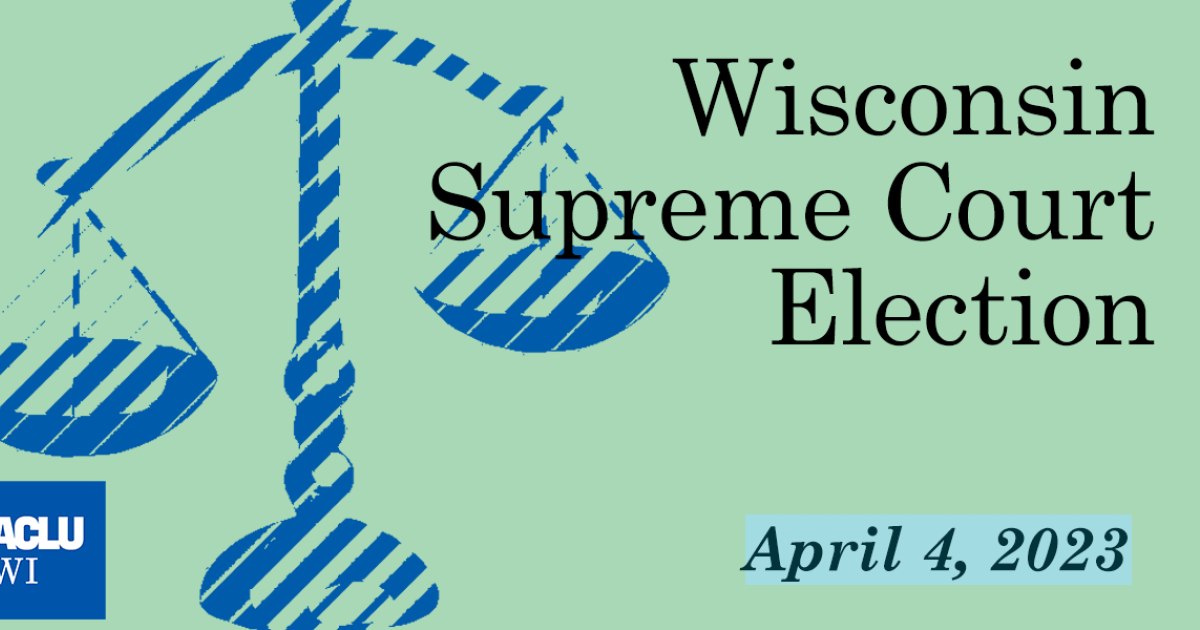At the ACLU of Wisconsin, our focus recently turned to two electoral cycles: the gubernatorial election in November 2022, and the April 2023 state supreme court election. I’m proud to say that there were many lessons learned, capacity built, and positive outcomes that we are happy to share with our teammates in the ACLU universe.
The outcomes of this work include a crucial veto for defending against assaults on our rights and a pivotal turn towards a court that will protect abortion access and democracy.
The collapse of abortion rights in Wisconsin was devastatingly painful — almost too painful to comprehend fully — but it also reminded me that the ACLU exists for moments like these. Even in the most harrowing times, I know that my team will show up and fight alongside our allies. And we have. It is our shared strength, knowledge, resilience, and enduring commitment to operate in service to our communities that drives us forward.
State supreme courts can act as the last defense for our rights, and Wisconsin’s high court is poised, in the coming years, to make monumental decisions affecting voting rights, gerrymandering, the criminal legal system, abortion, and more. The stakes of Wisconsin’s spring supreme court race were clear, and we knew that educating voters was the crucial next step. With that clarity of vision, we — the ACLU and ACLU of Wisconsin — deployed a whole-of-organization approach to ensure every eligible voter had the tools, knowledge, and resources they needed to cast an informed vote.
Our campaign focused on highlighting the candidates’ positions on abortion and worked to reach voters through radio advertisements on this issue, direct mail, door-to-door canvassing, community outreach, and social media. The ads reached 570,000 listeners over 10 times each. Abortion was the defining issue of this election, and these ads helped people across the state get to know each candidate’s views in their own words.
To educate even more voters, our team sent three flights of mail breaking down the candidates’ perspectives on abortion as well as voting rights, LGBTQ+ rights, and more, while we made calls, knocked on doors, talked one on one with voters, and recruited volunteers. In total, we engaged well over 100,000 additional people through these tactics, and those numbers grow even larger when factoring in other communication channels like social media, web traffic, and mass email communications.
After months of non-stop work, our ACLU staff joined with the rest of the country to await the outcome in Wisconsin on Election Day. From our office we watched the numbers climb to record-breaking turnout for a Wisconsin spring election that didn’t coincide with a presidential primary, and incredibly high engagement from young voters, women, and voters of color. This turnout was an emphatic declaration that Wisconsinites won’t tolerate attacks on our reproductive freedom.
I feel immense gratitude for all the people who poured themselves into the fight for a just future, resisting the worst impulses of our state, and showing up to support communities — especially those who have been historically excluded, advocating from the margins. Their passion and endless pursuit continue to give me strength. Together, we made sure that the peoples’ voice was heard in this vital election.
I hope that the countless hours Wisconsinites invested in getting out the vote will lead to a state supreme court that is steadfastly committed to defending our civil rights and civil liberties. In our enduring commitment to defending democracy, I’m inspired by the tireless effort, dedication, and determined spirit exhibited by so many people across Wisconsin during this critical race.
Date
Friday, June 30, 2023 - 3:00pmFeatured image






